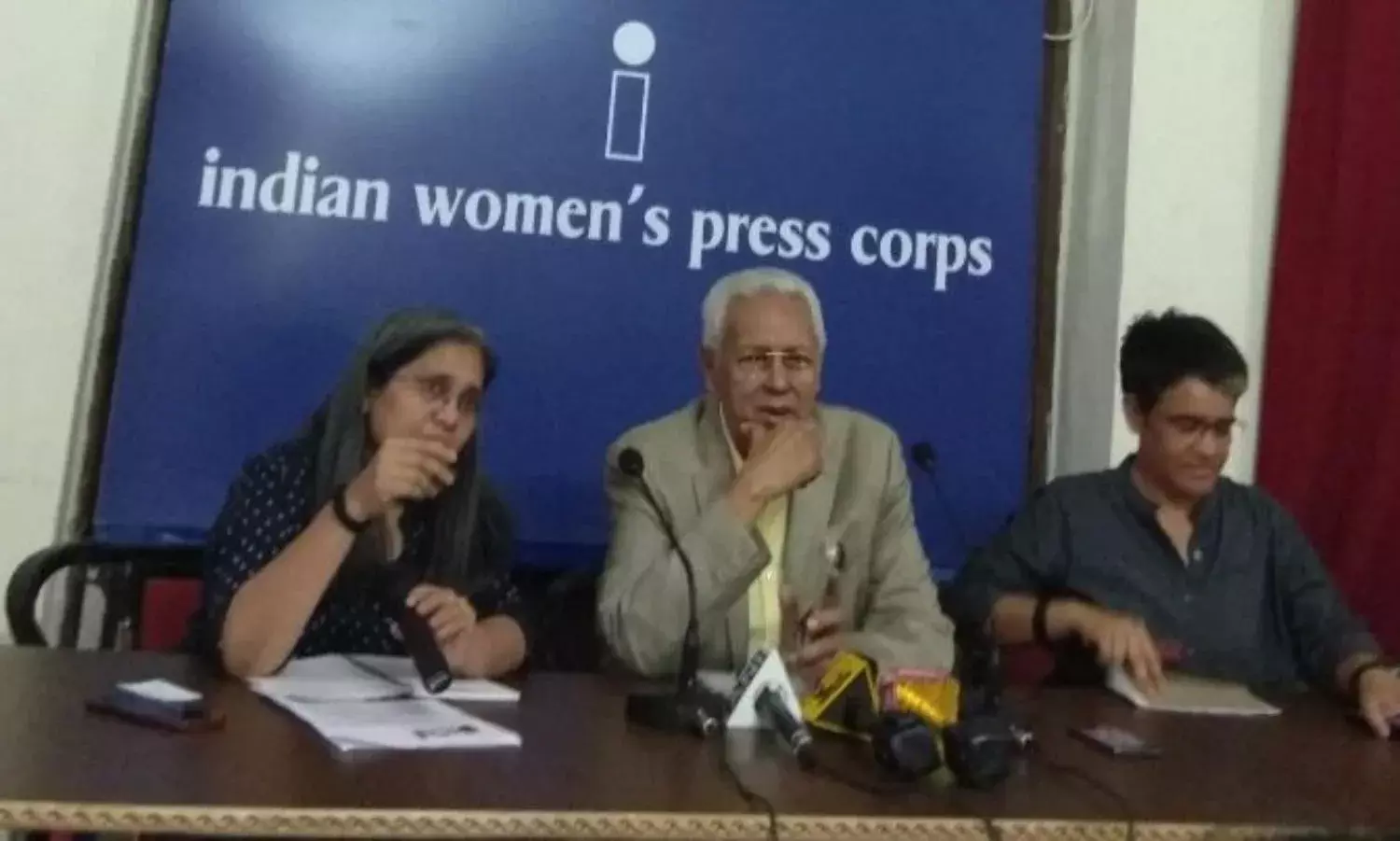'If There's Fire In Your Neighborhood, Put It Out Before It Engulfs Everyone': Bangladesh HC on Rohingyas
'Relations with India personal, with China professional'

NEW DELHI: Following the recent spate of meetings between Indian Prime Minister Narendra Modi and his Bangladeshi counterpart Sheikh Hasina within a span of a few months, Bangladesh High Commissioner to New Delhi -- on invitation from India Women’s press Corps -- interacted with the media. Syed Muazzem Ali spoke about the current phase of Indo-Bangladesh relations. A range of bilateral issues, from security and migration to connectivity and water sharing, were covered.
Referring on the recent 2-day visit of PM Sheikh Hasina to India, he said it was largely cultural in its dimension. She visited Vishwa Bharti University set by Rabindranath Tagore (author of national anthem of both the countries) to inaugurate Bangladesh Bhawan, followed by interactions with PM Modi, the CM of West Bengal, the chamber of commerce of Kolkata and others.
On the general state of relations:
Calling himself a freedom fighter diplomat, Ali said, “I feel very happy that after quite some time, the spirit of 1971 is back again and India-Bangladesh relations have become best ever since 1974.” He referred to the fact that President Ram Nath Kovind called Bangladesh ‘India’s closest neighbour’.
“It is natural to have bilateral problems with our neighbouring country. But our leadership has shown that with patience and understanding, any issue can be resolved if talks are sustained with an open mind. Two issues which normally would have created significant tension between two countries, was peacefully resolved by us, i.e, Land boundary and Maritime boundary dispute”.
On security:
Ali said that around 4,096 km long border between India and Bangladesh is not a natural border but a manmade line which goes through houses, sometimes markets and even river routes. This creates many economical and political challenges. Thousands of people cross the border every day. Benapole-Petrapole is considered to be one of the busiest land ports of the world.
While traffic is high, no terrorist or insurgent attack has taken place at the border in the last nine years. This has been possible because of shift in foreign policy, under PM Sheikh Hasina, towards zero tolerance to terrorism.
Ali said that there are no bilateral issues between Bangladesh and Myanmar beside the ongoing Rohingya refugee crisis.
“Bangladesh has being taking small lot of Rohingya since 1980s. The influx has drastically increased after military crackdown in August. The crux of the problem here is Myanmar;s inability to consider Rohingyas as their citizens. Apart from creating humanitarian crisis, it is also causing radicalization and drug trafficking related problems.”
“We urge India and other nations to mount more international pressure on Myanmar. If there is fire in your neighbourhood, it is advisable to put it out ASAP, else it will engulf everyone.”
When asked by The Citizen about the possible worsening condition of Rohingyas refugees camps during the upcoming monsoon season, he said, “all possible arrangements are in progress. On this front, we commend support coming from China, Japan and especially India which is the single largest humanitarian aids donor for Rohingyas refugees in Bangladesh”.
On water sharing:
Putting across Bangladesh’s stance on water sharing complexities between the nations, he said, “India- Bangladesh share 54 common rivers. Water sharing, especially of Teesta River still remain unresolved largely due to issues put forward by West Bengal CM. Luckily for us, we have enough water for nine months of the year but need water for rest of the months. Currently, state of negotiation is on. We hope to sign water sharing agreement soon.”
On SAARC’s demise and revival of BIMSTEC:
Showing hope for SAARC, Mr. Ali said, “All member nations of SAARC have worked to uphold SAARC. Although, recent summits have being canceled because of Pakistan’s inaction towards terror outfits operation in its land, we won’t let SAARC die. BIMSTEC doesn’t have equal political investment. Consider this, apart from last year summit, in the last 20 years, there has been only 2 summits. ”
On connectivity:
Ali explained in detail how road connectivity between the two countries has been problematic since colonial times. Today, apart from all new trains, all rail connectivity prior to 1965 is fully restored. Bus services have also started.
On rising problems for BBIN, he said, “For one, we are waiting ratification from Bhutan on this. Other problem in near future will be finishing the connectivity without completing the repatriation of Rohingyas before that. ”
On cattle smuggling:
“Cattle smuggling has significantly reduced in the last two years, thanks to our own increased production”, he said.
On growing closeness to China:
Categorizing Bangladesh’s relations with India as personal and with China strictly professional, Ali said, “If my big brother doesn’t have money to lend me, I go to a bank manager. By doing so, my bank manager doesn’t become my big brother; my big brother remains my big brother.”
To sum up how intrinsic Bangladesh is to India, he explained when a child learns to draw the map of India, as a bonus he draws Bangladesh too.



